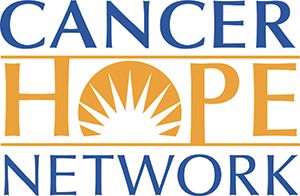Faces of Love: Cancer Caregivers

Cancer caregivers deal with a lot. Connecting with someone who understands can help.
Caregiving can be rewarding and fulfilling – and utterly exhausting.
In a world that celebrates the most romanticized of loves – with chocolates and flowers and the occasional unrealistic expectation – we’re taking a look at the realities faced by caregivers and the patients they love.
“Nothing prepares you for these kinds of situations. There’s no dress rehearsal,” says Rodney, a Support Volunteer who cared for his wife Vera during her fight with metastasizing lung cancer.
Caregivers like Rodney aren’t alone. An estimated 1.8 million patients are diagnosed with cancer each year and for many of those patients, the care provided by their medical team is supplemented by unpaid caregivers. The 2015 National Alliance for Caregiving and AARP Study Report estimates 7% of the general population is a family caregiver of a loved one with cancer.
For caregivers, the struggle to balance hope and love with fear, financial stress, physical exhaustion and guilt can be confusing and draining. That’s where CHN Support Volunteers can help. They’ve been on this journey – and understand.
Ann, who cared for her husband after his stroke and through his battle with bladder cancer while fighting multiple bouts of cancer herself vividly recalls leaving her house to cry in her car. Today, she encourages caregivers: “Take one day at a time. Don’t think ahead, because it’s overwhelming. Don’t get too caught up in thinking ahead and focusing on oh, I can’t this and that. They’re coming out with new research, new information and new drugs every day – don’t lose faith.”
Cyndie, married to her husband for more than 30 years, was a patient first and then a caregiver. She was the mother of small children when she was diagnosed with lymphoma. “No matter how badly I felt or how ugly I felt, he was there to hug me,” she recalls of her time going through 35 rounds of radiation and six months of chemotherapy. “Be spontaneous when you can. You don’t have to plan for things. A lot of the best laid plans fall apart. That’s when life is fun.”
Joe, whose wife and community of friends supported him through esophageal cancer more than 20 years ago is deeply appreciative of the practical love he received. “Everyone chipped in, taking me to treatment, sitting by my side,” he remembers gratefully. His reminder to patients is simple “Support is very important – but remember that your caregiver and family is going through something too. It may not be what you’re going through (as the patient), but everyone is suffering.”
Linda, a colon and breast cancer survivor who cared for her husband when he was diagnosed with brain cancer remembers the friends who jumped in to help. “It’s not in my nature to ask for help. That’s not me. My neighbors and friends rose to the occasion...They all wanted to do something, I never had to ask.” She encourages others to do the same today, helping out where needed, even before being asked.
Hugo, whose wife has been receiving palliative care for her metastasized breast cancer since 2011, recognizes each caregiver – and even each day – may be different. “If you feel compelled to make the call, make the call (to Cancer Hope Network). It’s not permanent – today, you may feel like talking, in a few days that may change. There’s not a right or wrong answer, it’s what works you.”
To connect with a caregiver or survivor who understands, call 877-HOPENET (877.467.3638) or visit cancerhopenetwork.org.
